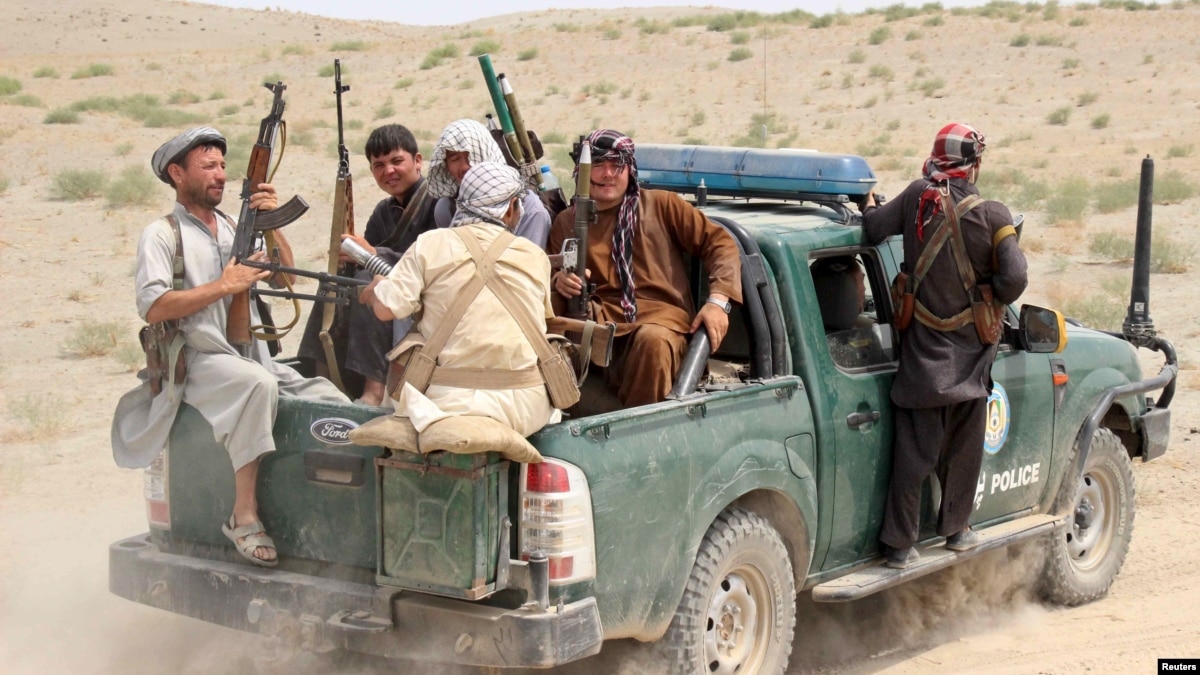
The Taliban insurgency has announced the launching of its annual spring offensive in Afghanistan, dealing a blow to weeks of renewed hopes for possible peace negotiations. The move comes as preparations are gaining momentum to organize long-delayed Afghan parliamentary and district council elections scheduled for October 20.
The new insurgent operations, dubbed ‘Al Khandaq’, went into action early Wednesday and “the American invaders and their intelligence agents” will be its “primary” target, said a Taliban statement.
The move came weeks after Afghan President Ashraf Ghani, at an international conference in Kabul, offered to engage in unconditional talks with the Taliban for ending the 17-year-old increasingly deadly conflict.
While Ghani’s overture was widely welcomed by domestic and international stakeholders, the insurgent group had since been silent amid speculations the Taliban could be mulling joining the talks.
The Taliban justified its offensive, saying the country remains under an “illegitimate” foreign “occupation.”
Thousands of additional foreign forces, it maintained, are being deployed inside Afghanistan under President Donald Trump’s new war strategy and they are supplied with “new devastating weapons and vast military authorities.”
Trump unveiled his strategy for Afghanistan back in August to try to reverse Taliban battlefield gains by intensifying military operations to pressure the insurgents to come to the negotiating table for a dialogue with the Afghan government.
While American military commanders have since reported progress on the battlefield, the Taliban has responded by increasing attacks against Afghan security forces and making territorial gains.
The insurgent group currently controls or contests more than 44 percent of Afghanistan, according to recent U.S. military assessments.
Afghan Elections
Earlier this month, the Afghan Independent Election Commission launched a voters' registration process for the October parliamentary and district council elections. The insurgent offensive, analysts, say will pose a major challenge for Afghan security forces to ensure voters security.
The Taliban has rejected the democratic process as stage-managed by the U.S.-led foreign "occupiers" and urged Afghans to boycott the polls.
The United Nations has warned civilians continue to bear the brunt of the Afghan armed conflict and documented a record 2,260 civilian casualties in the first three months of 2018. More than 10,000 civilians were killed or wounded in the previous year in Afghanistan.
Tensions with Pakistan
The intensification in Afghan hostilities in the wake of the new Taliban offensive is likely to raise Kabul's tensions with Pakistan.
Afghan and U.S. officials allege insurgent sanctuaries in the neighboring country have enabled the Taliban to sustain and expand its violent campaign.
Trump earlier this year suspended military assistance to Pakistan until the country takes decisive action against terrorist sanctuaries on its territory.
Islamabad rejects the charges, saying Pakistani security forces have cleared all terrorist infrastructure from their soil.

No comments:
Post a Comment